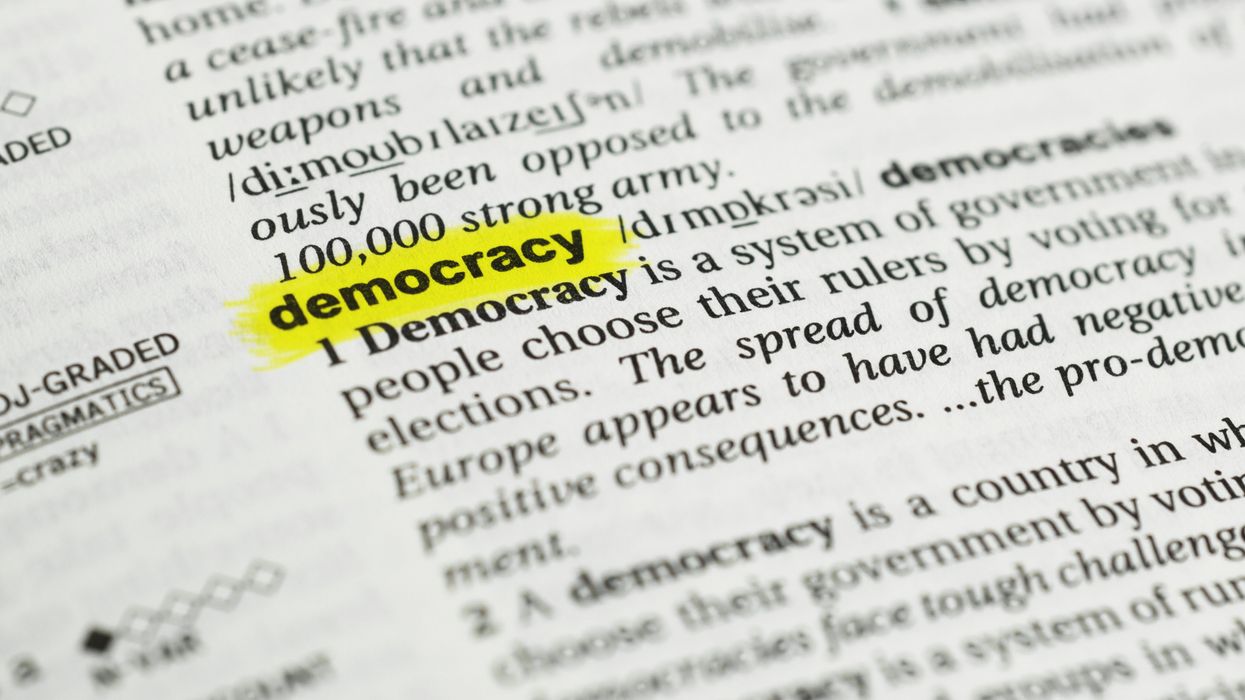Arizona Town Hall, a longstanding institution in the state, recently convened a group of community leaders to discuss the 2024 election, the persistent deep divisions, and the enduring desire for unity that define our current political landscape, outlined in Arizona Town Hall’s Highlight Report on voting and elections.
John Fees and Elizabeth Neumann capped the morning with a fireside chat on the importance of addressing rising political polarization, grievance-based violence, and growing distrust in our institutions through collaborative solutions—and the critical role that business and civic leaders can play. John is a CEO and founding member of Leadership Now Arizona, an organization that engages business leaders in strengthening democracy. Elizabeth is a former Assistant Secretary for Counterterrorism at DHS and author of Kingdom of Rage.
Arizona, a state long celebrated for its pioneering spirit, diverse communities, and vibrant economy, now stands at a critical juncture. While the 2024 election is in the rearview mirror, political polarization, grievance-based violence, and growing distrust in our institutions continue to erode our democratic foundations. These challenges extend beyond politics, threatening the very social fabric that has sustained Arizona's progress.
The statistics are alarming. Surveys from the past few years have indicated that 26.2% of Americans—over 68 million people—believe violence is usually or always justified to advance a political objective. While most will not commit a hostile act, scholars and violence prevention practitioners know there is a link between the level of support for political violence and an increase in violence. With only 800,000 law enforcement officers nationwide, of which 14,000 are based in Arizona, the responsibility for protecting democratic processes and institutions—and those who have sworn to uphold them—cannot solely rest on law enforcement;
Arizona has seen harassment and threats against elected officials, poll workers, and civic leaders, exemplified by the 2022 attack on former House Speaker Rusty Bowers’ home and Shelby Bush’s troubling rhetoric aimed at Stephen Richer, the former Maricopa County Recorder.
Business and civic leaders in our state have a vested interest in addressing these challenges head-on. Our companies, communities, and way of life are at risk—but we have the tools and resolve to drive change.
First, we need to acknowledge the severity of grievance-based violence, a growing threat demanding immediate attention. Instead of despairing, we can take proactive steps towards solutions. This begins with strengthening community bonds and restoring trust in our institutions.
Doing so is not just a moral imperative; it’s a strategic necessity for businesses to thrive. When employees, customers, and communities feel safe and respected, it fosters stability and trust—both essential for a strong economy. But when they don’t, their grievances spill over into the workplace and the broader business environment.
Earlier this year, the Edelman Trust Barometer revealed a widespread sense that the system is unfair and businesses and other institutions are making things worse and eroding trust across all institutions, including business. When grievance levels are high, respondents indicated they are more likely to support what Edelman calls “hostile activism”—including online attacks, the intentional spread of disinformation, violence or threats of violence, and damage to public or private property.
To constructively address grievances and restore faith in our democratic institutions, business and civic leaders should use their platforms to model civil discourse and condemn unacceptable conduct in workplaces and public spaces. Strong civic institutions are essential for fostering sustainable growth and innovation.
Collaboration is also key. As community leaders, we should proactively partner with government, law enforcement, and community organizations to address the root causes of polarization and violence. This includes advocating for policies that strengthen democratic institutions, support public servants, and promote civic engagement. Leadership Now Arizona, of which John is a co-founder, led the way last year by issuing a statement in support of election officials and condemning threats against them.
Finally, investing in community resilience is vital. Initiatives like the Arizona Town Hall, which gather diverse stakeholders to address complex challenges, demonstrate how open dialogue can build consensus and mitigate the grievances that fuel extremism.
Just as we seek to protect and restore democratic integrity, we should also exercise caution in approaching legislation. As business and civic leaders, we have a duty to speak out, to ensure that state policies —such as Prop 314—foster unity, not division. By prioritizing rational, inclusive approaches over grievance-driven rhetoric, we can support Arizona’s future as a strong, resilient state.
The path forward is challenging, but by uniting, we can reclaim Arizona’s democratic promise. Arizona has always been defined by its pioneering spirit and resilience—from the Copper Kings era to the rise of the tech industry, Arizonans have continually overcome challenges.
Now is the time to confront this new threat with the same resolve, by stepping up, taking risks, and leading by example. The future of our state, and our nation, depends on it.



















Trump & Hegseth gave Mark Kelly a huge 2028 gift